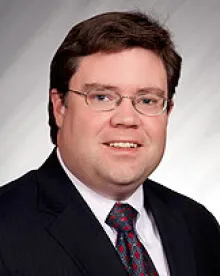Although you might think that cussing in the workplace should get an employee fired, a recent decision from the District of Colorado shows that it all comes down to the context. The court denied summary judgment for an employer, finding that the plaintiff-employee had established a prima facie case of age discrimination and provided sufficient evidence of pretext. The case, Roach v. Safeway, Inc., Case No. 12-cv-1239-RBJ, involved a 60-year old store manager with 40 years of seniority in the company. The employee had an overall history of positive evaluations, had been recognized as “Manager of the Year” on multiple times, but more recently had been disciplined for the poor performance of his store. For example, he received verbal warnings in 2009 and 2010, and a written warning for the store’s failure to satisfy an audit in 2011.
The incident triggering the employee’s discharge happened in March 2011, when two of the manager’s subordinates complained that he had said, “I’m tired of this s---.” After the subordinates reported this statement to human resources, the company fired the employee for using profanity in the workplace.
In his lawsuit against the company, the 60-year old former store manager alleged he wasn’t fired for his bad language, but because he was too old. The employer replaced him with a younger employee, and he produced evidence that various superiors had made age-related comments, such as asking him why he was still working, telling him that he should be out playing golf, and inquiring about when he planned on retiring.
Significantly, the court also observed that the employee was not the only store manager to use profanity in the workplace – although he was the only one fired for doing so. Indeed, the court noted as an example that the district manager who fired the employee also regularly used profanity in the workplace.
The case serves as a useful reminder of several important lessons. First, employers should be sure to train employees – and particularly managers – to monitor what they say in the workplace and how they say it. Aside from the obvious use of profanity, even the simplest, most innocent comments (such as about retiring, golf, etc.) could be used to support a claim against the company down the road. Second, employers must ensure that they treat employees consistently. If an employer intends to rely on the use of profanity as a terminable offense, it should be able to point to other employees discharged for similar offenses. And, all things being equal, there should not be any employees who engaged in a similar use of profanity who were not terminated.




 />i
/>i

